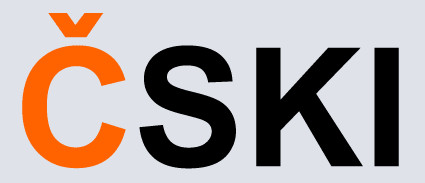Seminar Announcement
Talk by : Some algebraic (and topological) tools and their application to logic
@ Seminar on Applied Mathematical Logic16.12.2020 16:00
The talk will be a non-technical overview of the speaker’s research interests, for the purpose of introducing the researcher to the working group. The main areas of interest are Abstract Algebraic Logic, Universal Algebra, and Substructural Logic—with a focus on Relevance and Intuitionistic Logics. But the talk will focus on a handful of specific tools from these areas, ex. Birkhoff’s Theorem, Jónsson's Theorem, some Bridge theorems and Esakia Duality, emphasising their applications and giving examples from the speaker's previous research.
Talk by : Logics of n-filters
@ Seminar on Applied Mathematical Logic02.12.2020 16:00
Classical logic is defined by truth-preservation in Boolean algebras: if the premises take the top value, then so does the conclusion. Dually, one might be interested in logics defined by the preservation of non-falsity: if the conclusion takes the bottom value, then so does one of the premises. Such logics are paraconsistent: in the four-element Boolean algebra both x and its negation may be non-false. In addition, the familiar rule of adjunction fails here: we may not infer that the conjunction of x and y is non-false given that x and y are non-false. In this talk, we shall study logics of non-falsity and other logics generated by upsets of Boolean and De Morgan algebras. In particular, we show that each finitely generated extension of the four-valued logic of Belnap and Dunn (FDE), admits a completeness theorem with respect to a finite Gentzen calculus, though not always a finite Hilbert calculus.
Talk by : The combinatorics of finite Heyting algebras and the topological group of the automorphisms of their limit
@ Seminar on Applied Mathematical Logic18.11.2020 16:00
There are several results linking combinatorial properties of Fraissé classes, certain classes of structures having the amalgamation property, and topological properties of the automorphism groups of their limits. In this talk, the speaker's work in progress on one instance of research in this vein, which is on the Fraissé class of finite Heyting algebras will be presented. This class is not *uniformly* locally finite unlike most other examples considered in this vein of research. It will be shown that our automorphism group is non-isomorphic to existing examples and that it is non-amenable. At the end of the talk, future research ideas pertaining to the Ramsey property of the class and, equivalently, the extreme amenability of the automorphism group will be discussed.
Talk by : On Equational Completeness Theorems
@ Seminar on Applied Mathematical Logic04.11.2020 16:00
A logic is said to admit an equational completeness theorem when it can be interpreted into the equational consequence of some class of algebras. Even if the vast majority of completeness theorems in the literature are of this form, it is known that there are logics lacking any equational completeness theorem. Despite the simplicity of this notion, intrinsic characterizations of logics with admitting an equational completeness theorem have proved elusive. This is partly because equational completeness theorems can take unexpected forms, e.g., in view of Glivenko's Theorem, classical propositional logic is related to the variety of Heyting algebras by a (certainly nonstandard) equational completeness theorem. As it happens, nonstandard equational completeness theorems of this form are ubiquitous. In this talk, we present a characterization of logics with at least one tautology (resp. locally tabular logics) admitting an equational completeness theorem. For a protoalgebraic logic, this amounts to the demand that there are two distinct logically equivalent formulas. While the problem of determining whether a logic admits an equational completeness theorem will be shown to be decidable for logics presented by a finite set of finite matrices and for locally tabular logics presented by a finite Hilbert calculus, we shall see that it becomes undecidable for arbitrary logics presented by finite Hilbert calculi. The undecidability result persists even if we restrict to equivalential logics.
Talk by : Admissibility in the multi-conclusion setting
@ Seminar on Applied Mathematical Logic12.02.2020 16:00
An inference rule $\Gamma/\varphi$ is admissible for $\vdash$ if adding $\Gamma/\varphi$ to $\vdash$ does not change the set of theorems. The notion of admissibility in the single-conclusion setting is already well understood and its characterizations are known. The situation changes in the multi-conclusion setting. There inference rules with a finite set of formulas in the conclusion are allowed. It appears that then the notion of admissibility splits into a number of nonequivalent ones. I will discuss them and provide their algebraic characterizations. (This work is parallel to Iemhoff's proof-theoretic investigation on admissibility).
Talk by : Ehrenfeucht-Fraisse methods in the model theory of L-topological spaces over finite MTL-chains
@ Seminar on Applied Mathematical Logic22.01.2020 16:00
Lattice-valued topological spaces were introduced by Goguen in the 1970s, as a generalization of Chang's fuzzy topological spaces. The intuitive idea is simply to study topologies where the open sets are \fuzzy" or lattice-valued, instead of crisp. Second-order languages to study topological spaces have been studied for classical logic in the past, so in this talk I'll introduce a second-order language over lattice-valued structures to study lattice-valued topological spaces. I will present some of the model-theoretic properties of said language, focusing on characterizations of expressivity via an Ehrenfeucht-Fraisse theorem. Some technical restrictions are necessary to get a well-behaved general model theory here: the lattice must be _nite. In this talk, I consider only MTL algebras, but it is possible that this further restriction can be relaxed.


